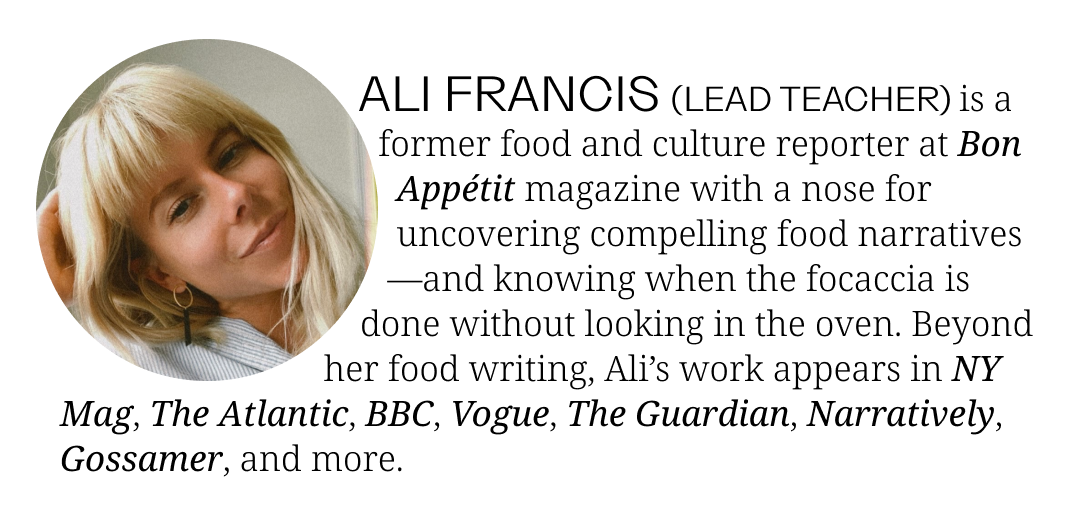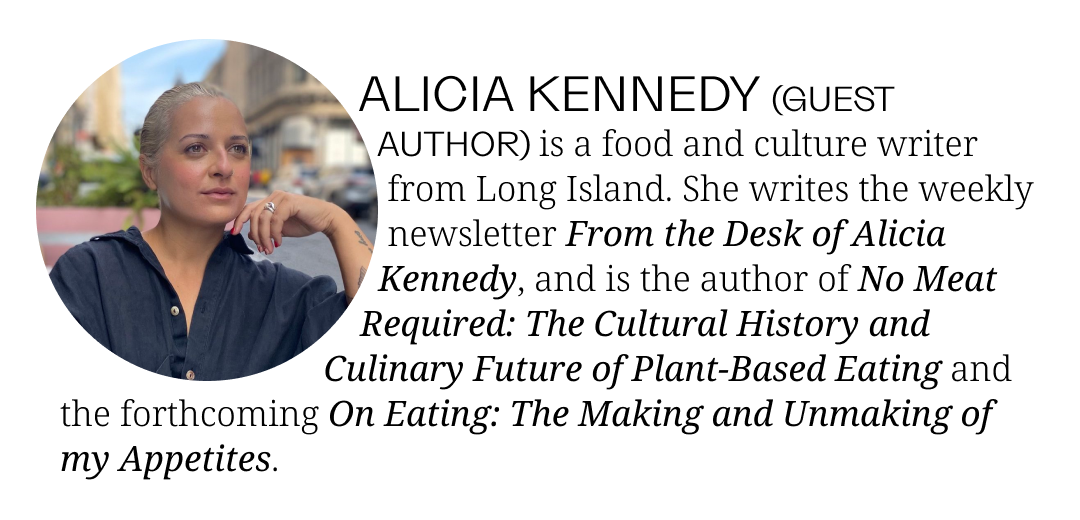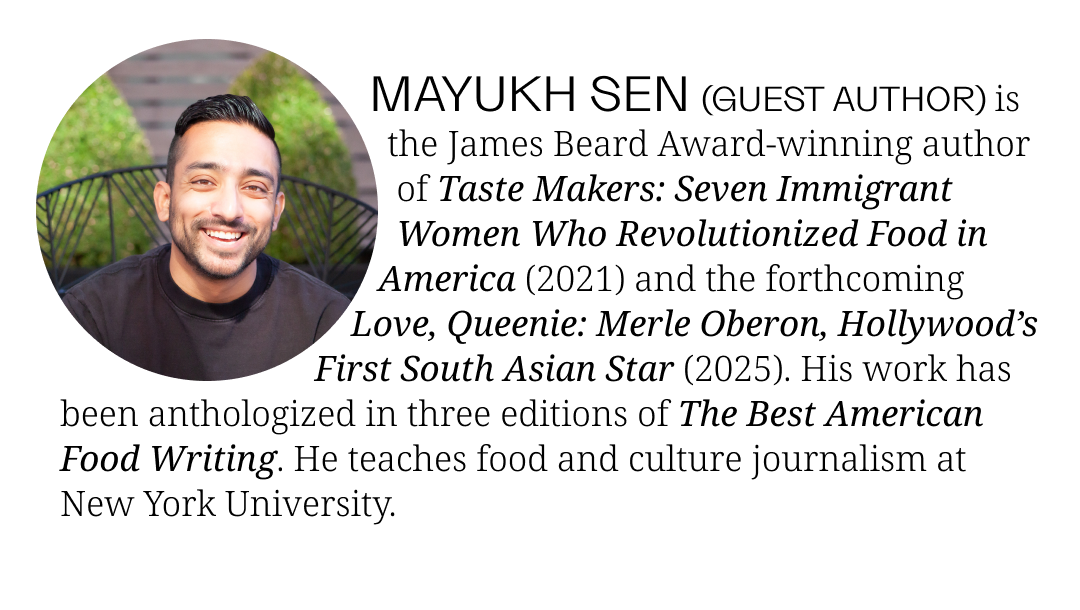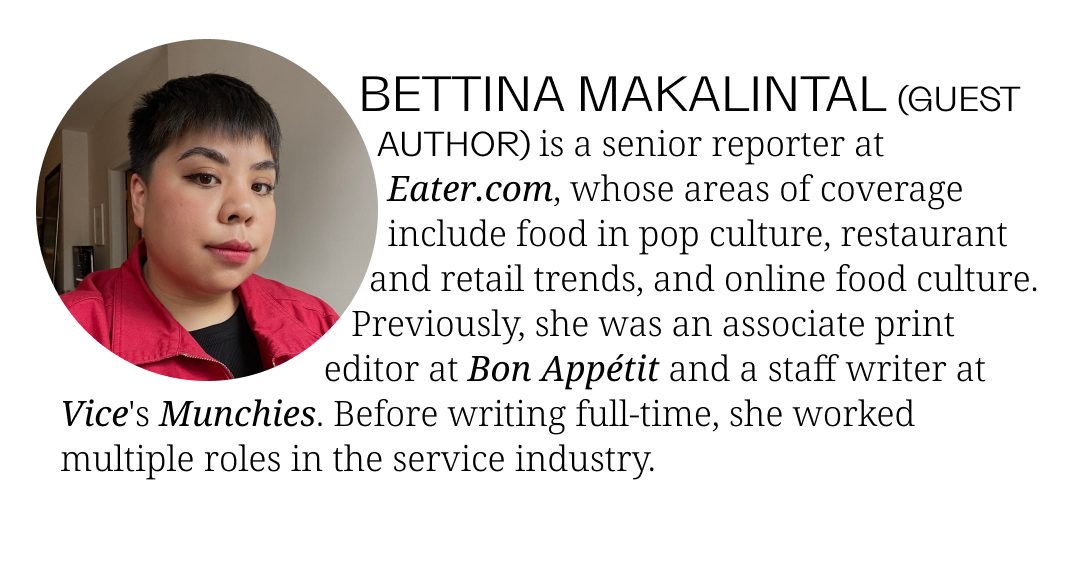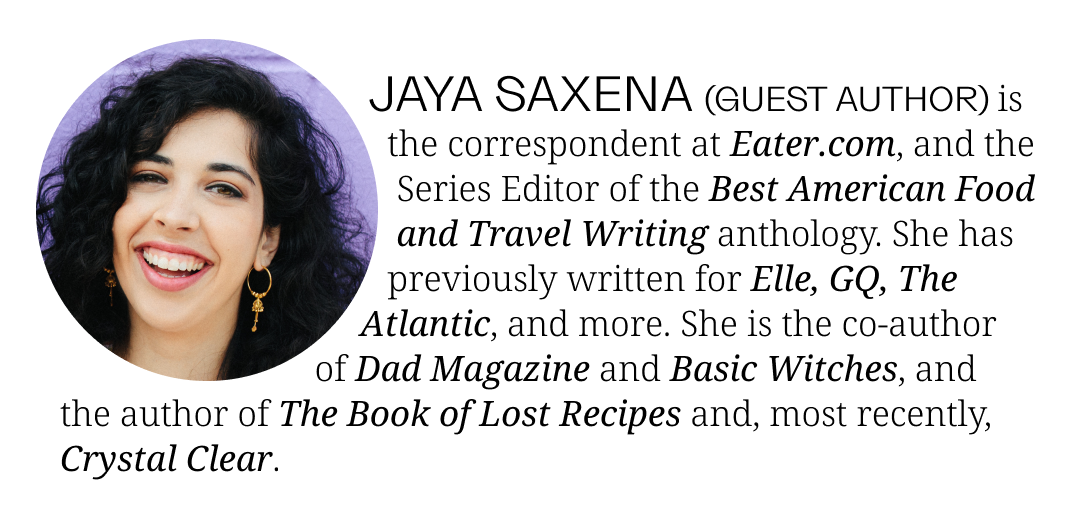Masters' Series: WRITING FOOD


Masters' Series: WRITING FOOD
Food writing is often seen as a flour-dusted space occupied exclusively by chefy, apron-clad types; either it’s recipe writing or restaurant criticism. But “food is everything we are,” wrote Anthony Bourdain. Writing about food is not just writing about the literal meal on the plate but also about the meaning of it, the ways it connects and backdrops our experiences, how it shapes our identities and our politics, and how our food choices and dietary patterns say something bigger about the world.
In short: Everyone who writes can write about food.
Led by food writer Ali Francis—with support from acclaimed guest authors Alicia Kennedy, Bettina Makalintal, Mayukh Sen, & Jaya Saxena—this course will expand participants’ definitions of food writing. What are all the ways we can write about food? What are the types of stories editors really want? How do you write about food without using the word “delicious” all the time?
By the end of this course, participants will leave with the inspiration to pursue food stories, the concrete tools to know how to craft a food pitch, surprising places to study evocative language, and insider knowledge of how to break into the industry. Close examination of work by some of today’s best writers will illuminate all the components that make excellent food writing so delectable.
This course is purpose-built for writers of all stripes: essayists looking to place food-related work, journalists looking to expand their beats, people who love food but never thought they could write professionally about it, and more. The ability to write evocatively about food stands to strengthen any piece of writing, whether it be reportage abroad, a memoiristic essay, a short article about a food trend, or a novel with a protagonist who loves to eat.
Each session will be seminar-like in style, including a relevant craft discussion, some recommended readings, a writing prompt, a conversation with one of our guest authors, and plenty of time to ask questions. While this class doesn’t incorporate feedback, there will be opportunity for brief sharing of work—and participants will leave each class with guided activities to do on their own throughout the week.
June 8: What is food writing?
Learn about the various types of stories—essays, reported features, profiles, trend stories, oral histories, and more—and how to know which one to write. Plus, looking through the food lens, what is the difference between content, creative nonfiction, and journalism? Also, hear from No Meat Required author Alicia Kennedy on where food writing ends and literary writing begins, what it’s like running a thriving Substack, and how to balance the political and personal.
June 15: Breaking into food writing:
Hear about Ali’s journey into food writing, and tips on placing early work in order to…place more work. (It’s like how you have to have a credit history to get a credit card.) Taste Makers author and James Beard Award-winner Mayukh Sen will also drop in to talk about his meandering path to food writing; how he balances longform book work with stories for mainstream publications; and how he writes about food while also writing about so many other topics.
June 22: Finding your “food” voice
Good food writing of any kind is somewhat specific in its sensory and evocative prose. Dive into excellent examples and unpack fiction—where food writing accidentally shines and challenges the hegemony that no doubt led to limiting beliefs about the genre—as an unlikely food writing muse. Also, hear from Eater reporter Bettina Makalintal on how she became a food writer, generates story ideas, and where she gleans inspiration for her food writing.
June 29: Pitching editors
Hear from real-life food editors and writers about exactly what magazines want and how to pitch them “itchy” stories, including examples of stellar food pitches that were actually commissioned. What actually shines through? Are previous food bylines necessary before pitching? Also learn about when (and why) to get personal—and when to put the self aside. Jaya Saxena, an Eater reporter and the series editor at Best American Food and Travel Writing, will visit class to talk about her experience pitching and developing stories and also give the lowdown on what she’s looking for in each Best American anthology.
*
This course will take place on Zoom on Saturdays June 8-29 from 12 to 2 p.m. EST. Participants will receive a Zoom link prior to the course as well as a recording of the course afterwards. We cannot offer refunds once the course has begun. Please email courses@offassignment.com with any questions.
A limited number of scholarships may be available for this course; please send a brief statement outlining how and why a scholarship would impact your ability to attend to courses@offassignment.com by May 10 and we’ll get back to you by May 17.
*
Off Assignment’s Masters’ Series courses are unique four-session courses on in-depth writing topics that harness the perspectives and craft tactics of a lead instructor plus celebrated guest lecturers, such that participating writers gain a wealth of input while benefiting from the cohesive leadership of one renowned writer in a particular niche of nonfiction.

